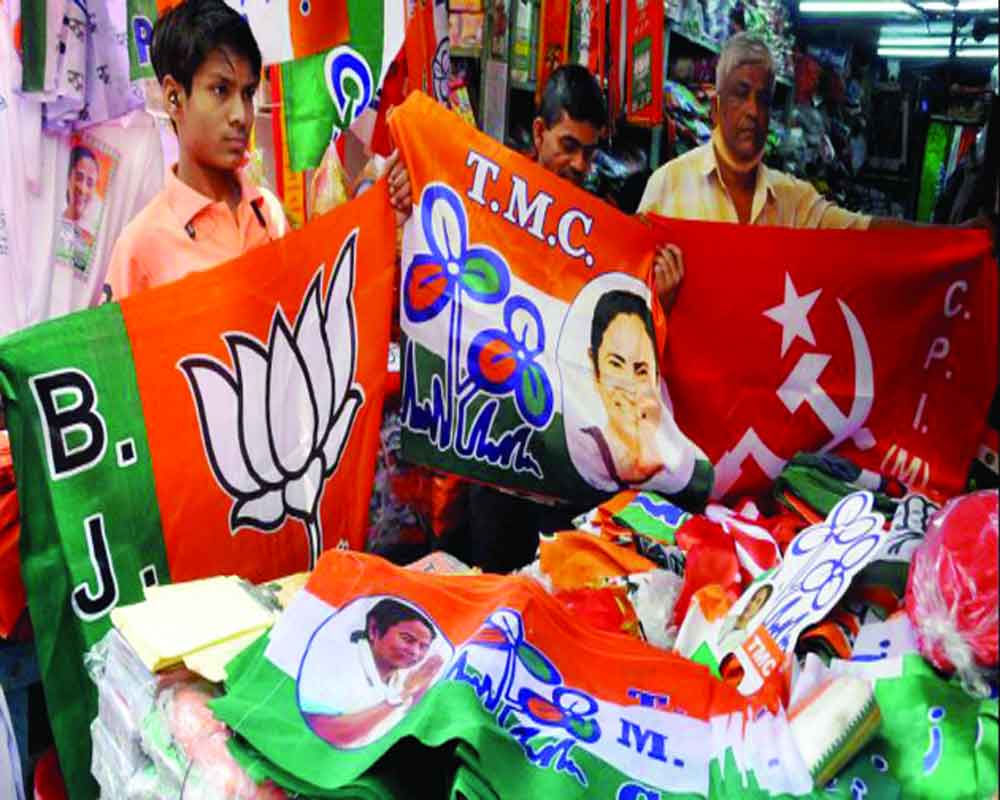Both TMC and BJP rush forth to claim credit for fugitive Sheikh Shahjahan's arrest after 55 days
The arrest of Trinamool Congress strongman Sheikh Shahjahan, who was wanted for the Sandeshkhali infamy involving the charges of gang rape and landgrab, is likely to further muddy political waters in West Bengal and intensify the bitter war of words between the Mamata Banerjee-led State Government and the BJP. On the run for 55 days following a mob attack on Enforcement Directorate officers during a raid at his house on January 5 in a ration scam case, Sheikh was finally taken into custody within 24 hours of the Calcutta High Court stating that the CBI, ED or State police could arrest him. However, the delayed development has opened a can of worms in political circles. While the ruling TMC maintains that Sheikh was apprehended now since the High Court had cleared the ambiguity on a stay on his arrest, the Opposition BJP claims that the accused was being shielded by the police and his arrest was "scripted" because of the "intense pressure brought on the Government by us". As the drama unfolds in West Bengal, one thing remains clear: Sheikh's arrest has ignited a firestorm, with both the main players vying for supremacy in the State's ever-evolving political milieu. While the development has sent shockwaves across the State, the political manoeuvrings have understandably quickened as both the TMC and BJP seek to capitalise on the situation, especially since the Lok Sabha elections are very much in sight, and Sandeshkhali and its aftermath could be a game changer for both parties. For the TMC, it presents an opportunity to reaffirm its commitment to combating corruption and upholding the rule of law. The party has wasted no time in touting the arrest as a testament to its dedication to clean governance and accountability.
On the other hand, the BJP has seized upon the arrest as evidence of its growing influence in West Bengal's political arena. The party sees it as vindication of its anti-corruption stance and validation of its claims of rampant corruption within the TMC-led Government. However, under the surface lies a deeper struggle for supremacy in the State's tumultuous political arena. The fierce battle for electoral dominance has only intensified with Sheikh's arrest, with each party seeking to leverage the situation to bolster its poll prospects. However, amid the political grandstanding, it is important not to lose sight of the broader implications of the fugitive strongman's arrest. Beyond being a mere pawn in the State's political underbelly, Sheikh's case underscores the pervasive issue of corruption that continues to plague governance in West Bengal. His arrest serves as a stark reminder of the challenges facing the State in its quest for clean and transparent governance, irrespective of political affiliations. Amid the cacophony of competing claims and counterclaims, the true test lies in the ability of Bengal's political class to address the underlying issues of corruption and criminalisation of politics, which continue to undermine the State's progress and development.


























